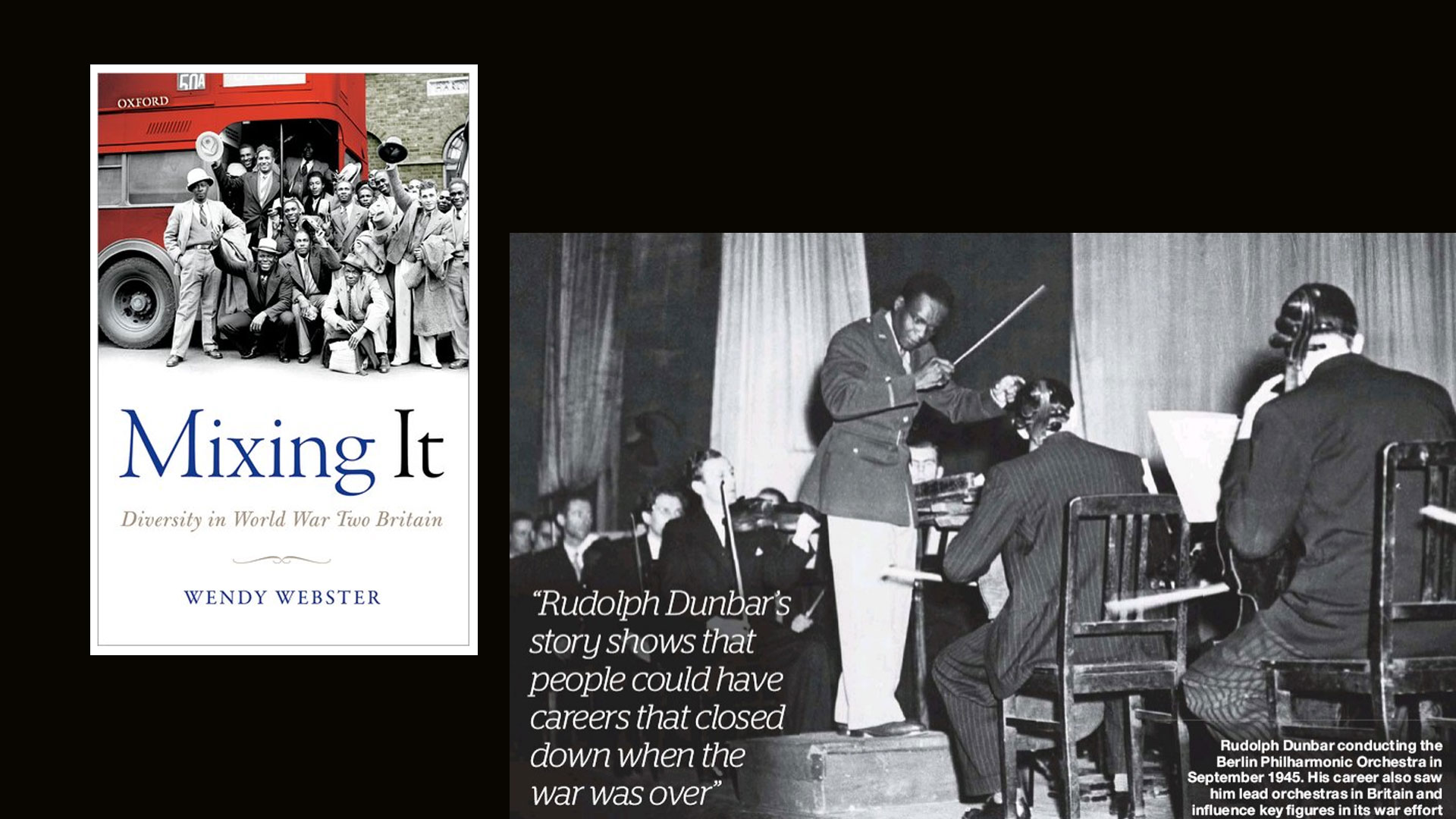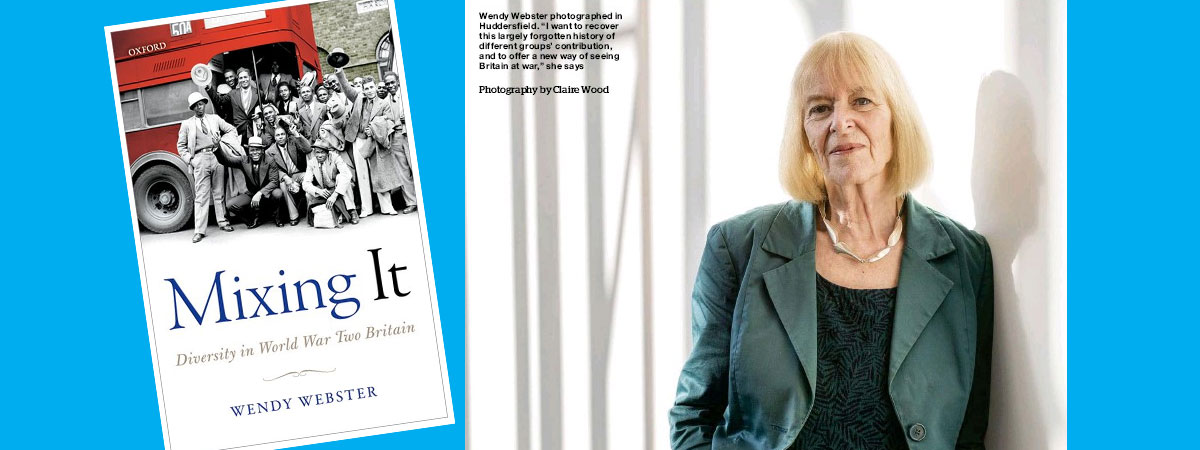
Multi-national, multi-ethnic wartime population largely forgotten

Professor Wendy Webster’s research looks at the ‘bigger picture’ of global movement in Second World War
AN enormous wave of refugees, exiles, troops and war workers from overseas meant that the population of Britain reached new levels of diversity during WWII. Once the war was over, this multi-national, multi-ethnic wartime population was largely forgotten. History Revealed, reviewing Wendy Webster’s new book comments: ‘Wendy Webster is on a mission to make us remember’.
Mixing It, by Professor Wendy Webster, is the latest outcome from a substantial project funded by the award of a Leadership Fellowship from the Arts and Humanities Research Council.
The project aimed to offer a new way of seeing ‘Britain at war’, recovering the largely forgotten history of the contributions of different national and ethnic groups. The research has also led to a permanent display being mounted at Imperial War Museum North in Manchester.
Mixing It is the first book to look at the big picture of large-scale movements to Britain and the rich variety of relations between different groups. The top-selling BBC History Magazine recently featured an interview with Professor Webster where she talked about why this history has been undertold.
“Most British history has a national frame of reference which means that stories about people who came to Britain as migrants and refugees – and as troops and war workers during the Second World War – tend to get sidelined. There are a number of books about particular groups in Britain, from Belgians and Poles to West Indians and Canadians, but nothing that looks at the bigger picture,” said Professor Webster.
Sources for Mixing It include diaries, letters, and interviews.
In addition to the bigger picture, Professor Webster tells numerous compelling individual stories. They include the story of people like Zbigniew Siemaszko and ‘Johnny’ Pohe.
Zbigniew was deported by the Soviet Union, getting out of Kazakhstan on a horse-drawn sleigh, and eventually joining the Polish army in Scotland via Iran, Iraq, and South Africa. Johnny is the first Maori pilot to serve in the RAF. He was captured, and later murdered by the Gestapo for his part in what was subsequently called the ‘Great Escape’.
Mixing It illuminates the place of the Second World War in the making of multi-national, multi-ethnic Britain and resonates with current debates about immigration.
To read more on this story, see Professor Webster’s contributed an article on BBC History Magazine’s History Extra website.
More News
Educating migrant children in 1960s/70s Yorkshire
Joe Hopkinson wins the Royal Historical Society Public History Prize for his text/documentary on the controversial approaches used
The autobiographical writing of Lady Anne Clifford
Professor Jessica Malay’s new book of the lady described as - the Queen of the North - is launched at Skipton Castle
Yorkshire – A lyrical history of the Great County
Richard Morris’s book, Yorkshire, is already earning critical and media interest